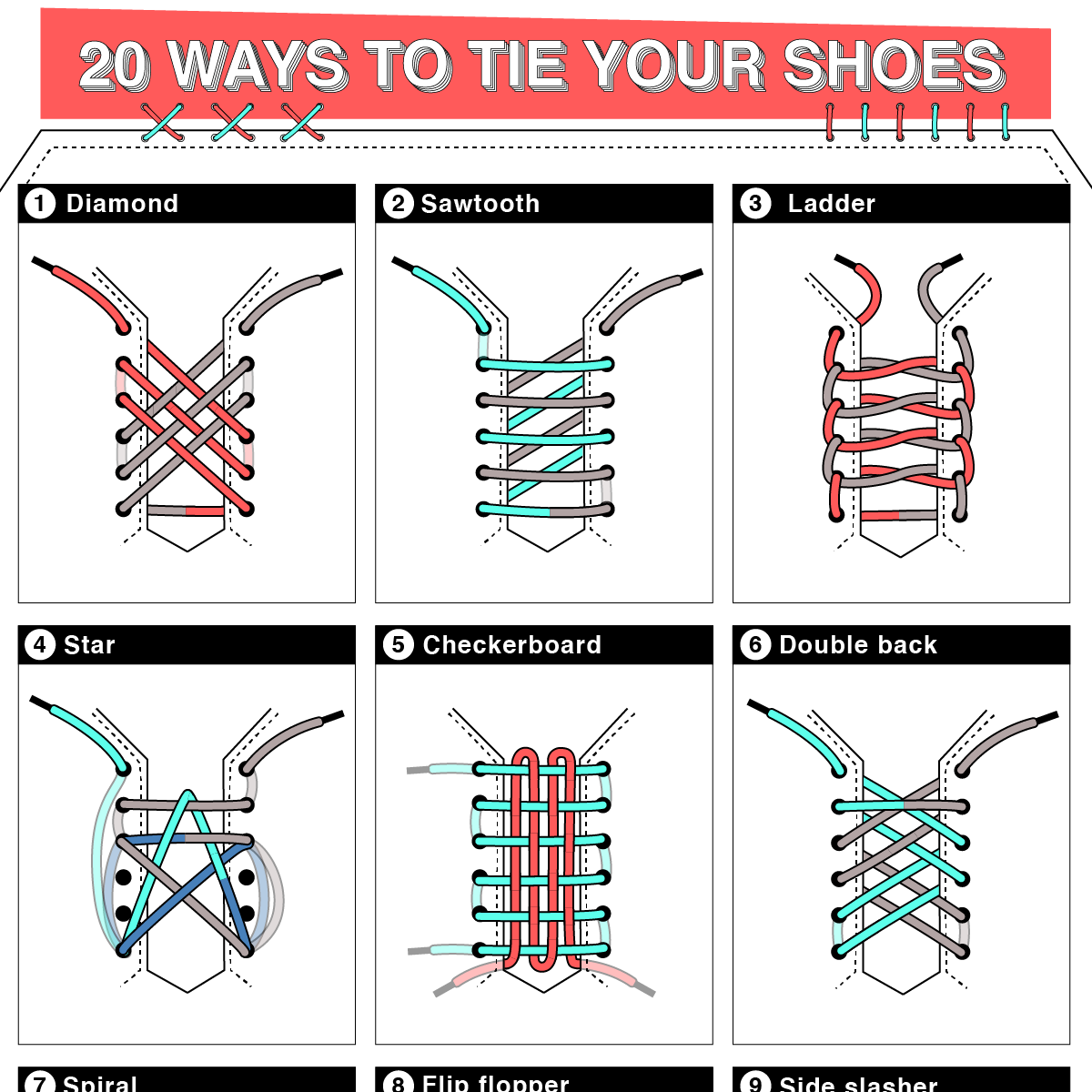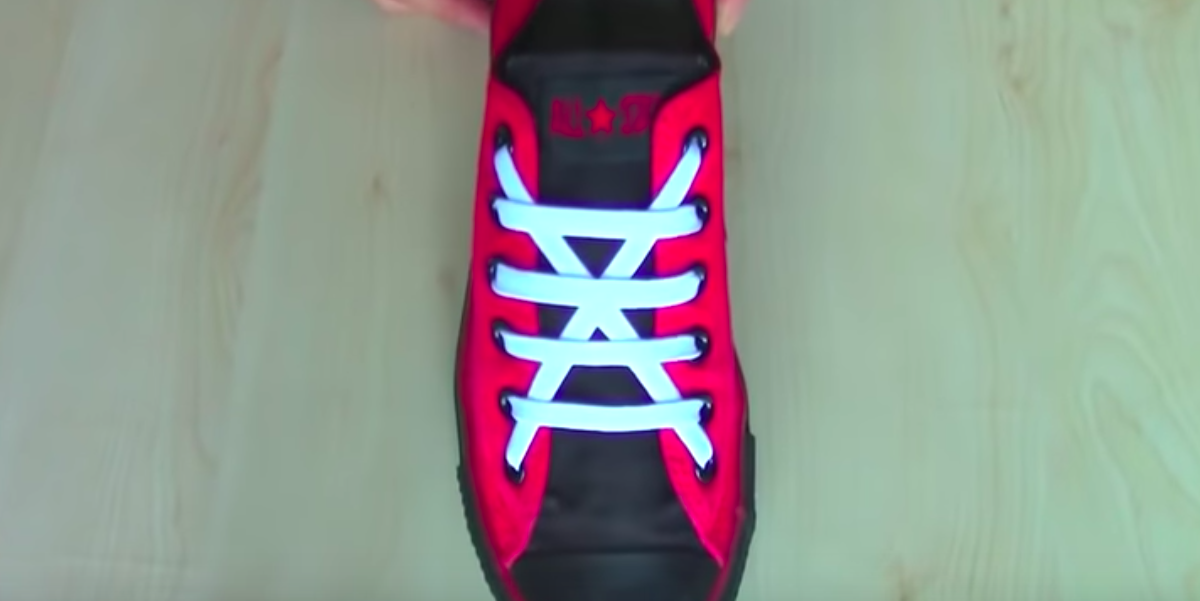Tying your shoes might seem like a mundane task, but with a little creativity, it can become an expression of your personal style. In this comprehensive guide, we’ll explore various innovative and stylish ways to tie shoes for guys. From everyday casual looks to sporty aesthetics, there’s a lacing technique for every occasion. Let’s dive in!
The Importance of Shoe Tying Styles
Lacing your shoes properly not only ensures comfort but also enhances the overall look of your footwear. In the competitive world of footwear, where brand prestige often ties back to a shoe’s presentation, mastering these techniques can elevate a simple outfit to a stylish statement. Whether you’re heading to work, hitting the gym, or going out with friends, the way you tie your shoes can make a significant difference.
Understanding Footwear Anatomy
Before we explore various lacing techniques, it’s essential to understand the anatomy of footwear. Shoes generally consist of the following parts:
- Upper: The part of the shoe that covers the foot.
- Laces: Strings used to secure the shoe around the foot.
- Eyelets: The holes through which laces are threaded.
- Insole: The inner layer that provides cushioning.
- Sole: The bottom part that contacts the ground.
Creative Shoe Tying Techniques
Now that we have a grasp on the basics, let’s jump into some of the most stylish ways to tie shoes.
1. The Standard Criss-Cross Lacing
The standard criss-cross pattern is the most common method for tying shoes. It’s effective for providing even pressure and stability. While it’s simple, there’s elegance in its simplicity. It can be adjusted for tightness based on your comfort needs.
Pros and Cons of Criss-Cross Lacing
| Pros | Cons |
|---|---|
| Easy to learn and execute | Common and less unique |
| Good for most shoe types | Can become loose if not tied properly |
2. The Straight (Bar) Lacing
Straight lacing offers a clean look and is ideal for dress shoes. The laces run parallel across the eyelets, creating a sleek line that can enhance the elegance of your footwear.

Pros and Cons of Straight Lacing
| Pros | Cons |
|---|---|
| Provides a sleek, polished look | Less secure compared to criss-cross lacing |
| Great for formal occasions | More challenging to adjust tension |
3. The Heel Lock Lacing Technique
If you’re into sports or activities that require substantial foot movement, the heel lock technique could be your best bet. This method helps prevent heel slippage and provides more stability during vigorous actions.

Pros and Cons of Heel Lock Lacing
| Pros | Cons |
|---|---|
| Prevents heel slipping | Can be complicated for beginners |
| Offers a secure fit | May require longer laces |
Fashion-Forward Lacing Styles
Let’s focus on the fashionable side of lacing. Here, creativity meets functionality to make your footwear pop.

4. The Aaron lacing technique
The Aaron technique is a unique and modern twist on standard lacing. By creating a diagonal pattern, it adds a subtle flair while still being practical.
How to Achieve This Look
- Start by lacing the bottom eyelets in the usual criss-cross manner.
- Thread the lace diagonally up to the next eyelet on the same side.
- Continue this diagonal pattern until you reach the top.

Pros and Cons of the Aaron Lacing Technique
| Pros | Cons |
|---|---|
| Unique and stylish | Not suitable for all types of shoes |
| Can be customized with color | More difficult to execute |
5. The Diamond Lacing Technique
The diamond lacing method creates a diamond pattern between the eyelets. Suitable for both casual and formal shoes, it’s a dynamic choice for those looking to stand out.

How to Do It
- Start with two laces that cross each other in the first eyelet.
- Continue lacing up, skipping every other eyelet.
- Make sure to pull tight to maintain the diamond shape.
Pros and Cons of Diamond Lacing
| Pros | Cons |
|---|---|
| Visually appealing and unique | May require practice to master |
| Good for various shoe styles | Not as secure as criss-cross lacing |

Real-World Experiences: Case Studies
To give you a better understanding of how these techniques function in real-world scenarios, let’s delve into some case studies from well-known footwear brands in the USA.
Case Study 1: Nike’s Innovative Approach
Nike has long prided itself on not just performance but also style. Their Flyknit sneaker line incorporates various lacing techniques that allow flexibility during athletic performances. Nike’s designers frequently recommend the heel lock technique for maximum performance in their basketball and running shoes. Their experimentation with lacing has made it a staple among athletes and casual users alike.

Case Study 2: Converse’s Classic Appeal
Converse offers a myriad of shoe styles, many of which allow for customization in terms of lacing. Their iconic Chuck Taylors look excellent laced with a straight or bar lacing technique. Customers have embraced the diamond lacing technique for a unique twist that adds character to their footwear. Converse’s engagement with customers on social media has spurred numerous creative lacing tutorials that enhance user experience.
Popular Shoe Brands and Their Lacing Preferences
Let’s look at some popular footwear brands in the U.S. and the associated lacing techniques that resonate with their products.

| Brand | Best Lacing Technique | Why? |
|---|---|---|
| Nike | Heel Lock | Stability during athletic activities |
| Adidas | Standard Criss-Cross | Versatility for various styles |
| Converse | Straight (Bar) Lacing | Iconic look with a clean finish |
| Puma | Diamond Lacing | Adds character and uniqueness |
Tips for Tying Shoes Effectively
Here are some tips to ensure that your shoe tying experience is seamless and effective:
- Choose the Right Length of Laces: Ensure that your laces are the right length to prevent fraying or overly long laces.
- Keep It Tight: Ensure that your laces are snug to avoid any discomfort during wear.
- Experiment! Don’t be afraid to try different lacing styles. What works for one pair of shoes may not work for another.
Frequently Asked Questions (FAQs)
1. What is the best lacing style for running shoes?
The heel lock lacing technique is recommended for running shoes as it provides stability and prevents heel slippage.
2. How do I know if my shoe laces are too long?
If your lace ends hang too low, or if you have difficulty tucking them in without them sticking out, they may be too long.
3. Can I use different lacing styles for different occasions?
Absolutely! Different occasions might call for different styles. A formal event might be more suited to straight lacing, while casual outings can incorporate fun styles like diamond lacing.
4. Is there a lacing style that works for all types of shoes?
The standard criss-cross lacing is versatile and works well with almost all shoe types.
5. How can I make my shoes more comfortable with lacing?
Experiment with different lacing techniques like the heel lock or skipping eyelets to relieve pressure points.
6. What types of laces are best for dress shoes?
Waxed laces are a great choice for dress shoes as they provide a polished look and hold knots better.
7. How can I care for my laces?
Periodically clean your laces by removing them from the shoe and washing them with mild detergent. This prevents dirt buildup and keeps them looking fresh.
Conclusion
Learning cool ways to tie your shoes is not only about aesthetics; it’s about comfort, security, and expressing your individuality. Whether you opt for classic styles or venture into more creative techniques, the right lacing can transform the look and feel of your footwear. As you explore these methods, remember that personal style is an expression of who you are. Happy lacing!